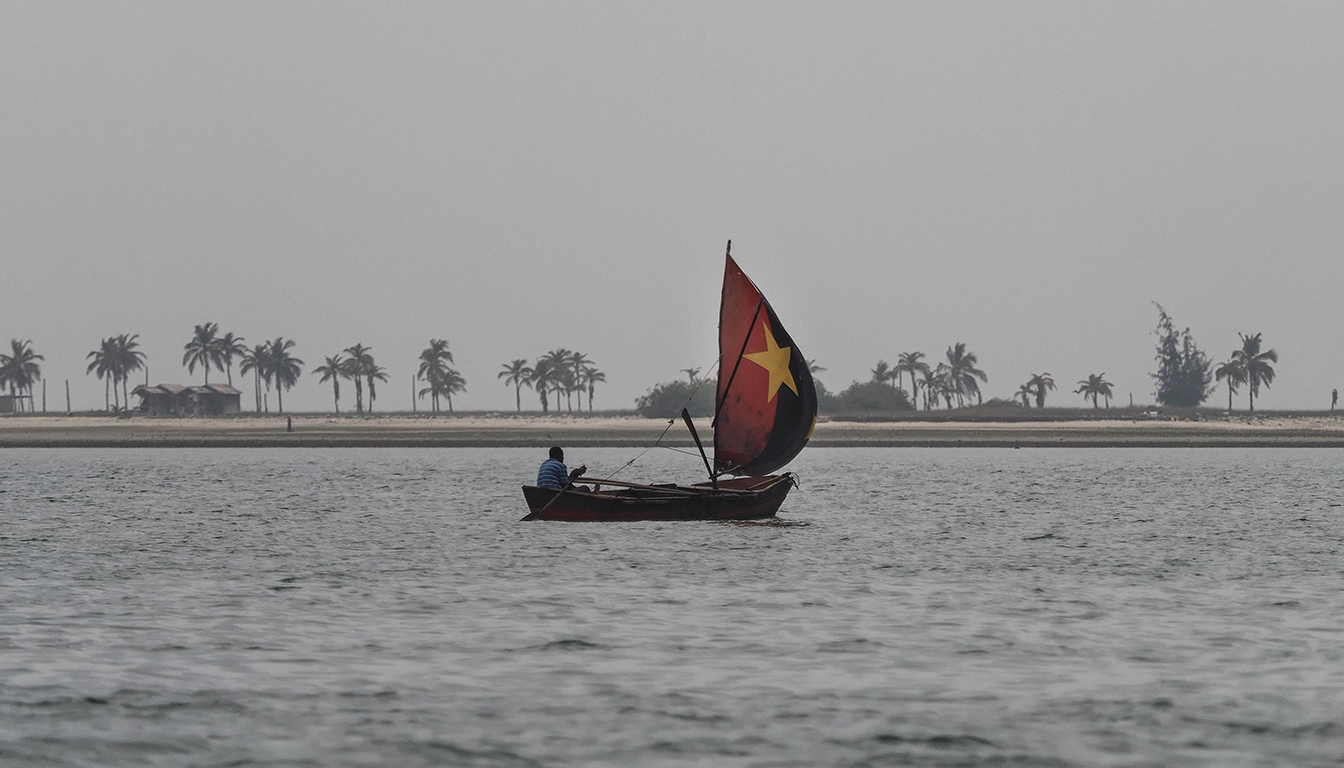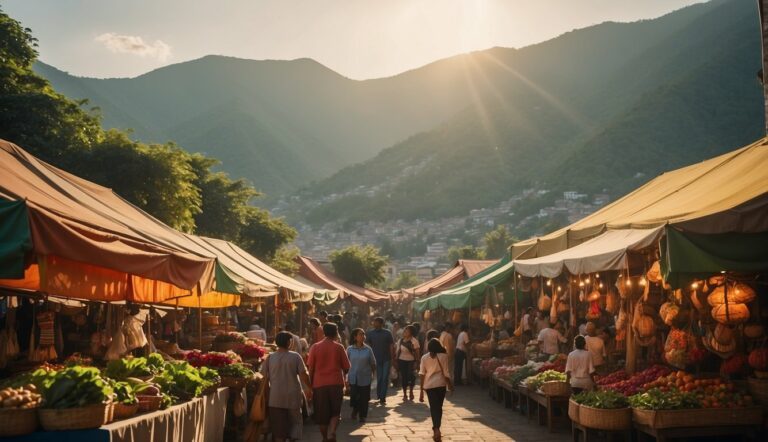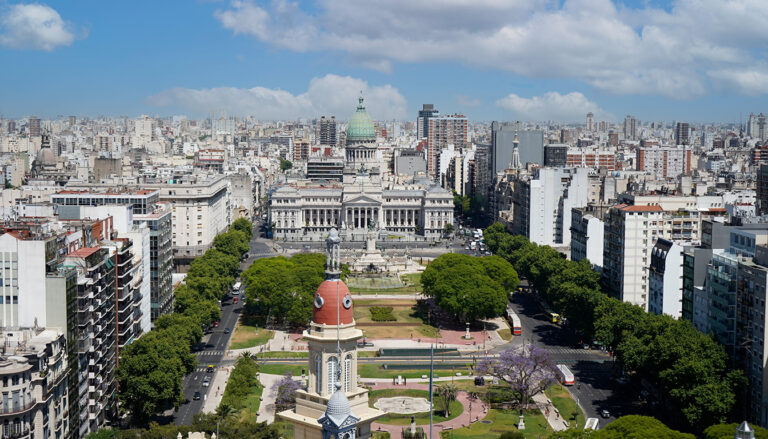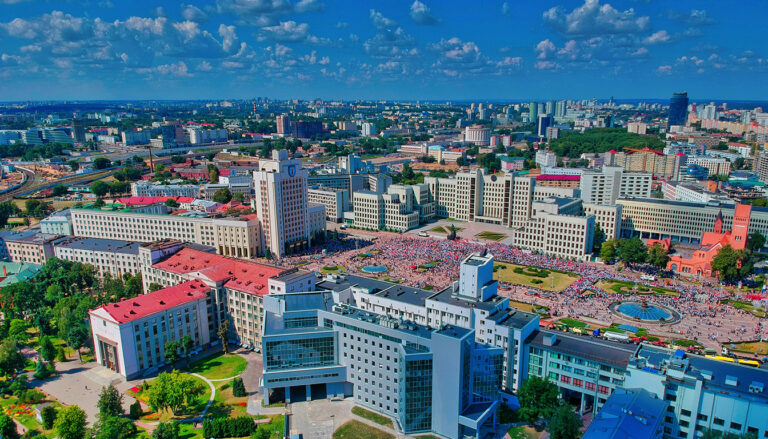Christmas in Angola: Traditions and Celebrations in the Heart of Africa
Christmas in Angola is a vibrant and significant celebration that reflects the country’s strong Christian faith, with over half of the population identifying as Catholic and a substantial number belonging to various other Christian denominations. It has become deeply rooted in Angolan culture following centuries of tradition and religious practice. The festivity is marked with an emphasis on religious ceremonies, including Midnight Mass on Christmas Eve and Christmas Day services, which are central to the holiday’s observance.
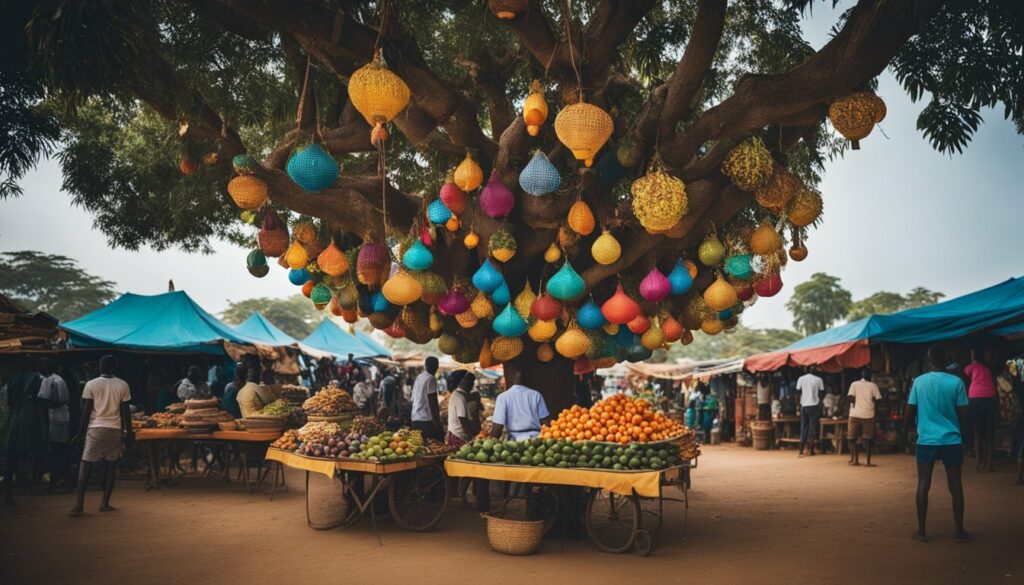
The holiday was introduced to Angola following the arrival of Christian missionaries in the 15th century. As a former Portuguese colony, Angola began to incorporate aspects of European Christmas traditions over time. Today, while maintaining its unique customs, Angola also embraces widely recognized symbols of the season, such as Christmas trees, stockings, and the figure of Santa Claus, enhancing the celebratory atmosphere across the nation.
In addition to religious practices, the societal festivities during the Christmas period involve communal gatherings, vibrant markets, and festive events. Street markets come alive with the buzz of shoppers looking for gifts, and food trucks offer seasonal treats, allowing locals and visitors alike to immerse themselves in the holiday spirit. Santa Claus also makes appearances, delighting children and adding to the widespread jovial mood that characterizes Christmas in Angola.
Significance of Christmas in Angola
Christmas in Angola holds considerable importance as a part of their rich cultural tapestry. A majority of Angolans identify as Christians, with over 50% of the population being Catholic and an additional portion affiliated with various Protestant denominations.
This holiday season primarily reflects the Christian faith, celebrating the birth of Jesus Christ. It is a time when families come together and practice their religious traditions. Going to church is a central part of the celebration, with Midnight Mass on Christmas Eve and services on Christmas Day being well-attended. The importance of these gatherings is underlined by a Christmas Day Mass broadcasted on national television.
In Angola, the festive atmosphere transcends religious boundaries. Even those who do not follow Christianity often partake in the festivities, highlighting the unifying spirit of Christmas. The following points illustrate the core activities during Christmas:
- Community and Family: Individuals come together, reinforcing family bonds and community cohesion.
- Religious Services: Attending Mass and other church services signifies religious devotion and reaffirmation of faith.
- Feasting: Sharing a sumptuous Christmas feast is a universal activity reflecting a joyous mood.
Portuguese colonisation’s influence is evident in how Christmas is celebrated in coastal areas, while less so in rural areas. Nevertheless, the essence of Christmas remains intact, blending African culture with Christian traditions to create a unique celebration in Angola.
Preparations and Decorations
As the festive period approaches in Angola, preparations and decorations take center stage, reflecting a blend of traditional practices and modern influences. From bustling markets to home decorations, Angolans embrace the holiday spirit through various activities and displays.
Market Shopping and Gifts
In the lead-up to Christmas, Angolan markets become vibrant activity hubs where shoppers seek gifts and festive supplies. The market facilitates the purchase of Christmas gifts and acts as a place for social interaction and the exchange of goods. Popular gifts often include handcrafted items, while more urban areas see a trend towards modern gadgets and toys.
Decorating Rituals
Families across Angola partake in the ritual of decorating their homes to reflect the holiday cheer. While some households may opt for contemporary Christmas trees adorned with lights and ornaments, many focus on setting up elaborate nativity scenes, a central element in Angolan Christmas decor. This tradition serves as both a decorative piece and a reminder of the holiday’s religious roots.
Cultural Displays
Dance and games are integral to the Angolan festive celebration, as they are often included in Christmas activities. Communities come together to enjoy performances and engage in friendly competitions, adding to the vibrant Christmas atmosphere. These displays encapsulate the cultural richness and communal spirit of the Angolan people.
Spiritual Anticipation
As the anticipation for Christmas Day builds, so does the spiritual preparation. Church attendance increases significantly during Advent, with many Angolans attending midnight mass or Christmas Day mass to commemorate the birth of Jesus. These gatherings are not just acts of worship but also opportunities for communities to unite in a shared spiritual experience.
Festive Meals and Culinary Traditions
In Angola, Christmas is a time for sumptuous meals that merge traditional flavors with Portuguese influences. Families come together to indulge in a feast that celebrates the season.
Main Dishes
Angolan Christmas celebrations often feature pirão or funge as a staple. These dishes are variations of polenta, made from corn meal or cassava flour. A traditional Christmas meal might include:
- Turkey: A festive centerpiece, often roasted.
- Fried Chicken: A popular choice that reflects local culinary preferences.
- Ozido de Bacalhau: Codfish cooked with a medley of vegetables, influenced by Portuguese cuisine.
- Calulu: A savory dish composed of either fried fish or beef, prepared with tomatoes, garlic, and a collection of vegetables such as okra and spinach.
Sides and Accompaniments
To complement the main courses, a variety of sides and accompaniments are served:
- Rice: Often served alongside main dishes.
- Spaghetti: Included as a nod to European influences.
- French Fries: A popular side dish in many cultures, also enjoyed in Angola during Christmas.
- Vegetables: A variety of vegetables like sweet potatoes and palm oil beans are stewed or sautéed to serve.
- Grilled Fish: Usually served with stewed palm oil beans, cassava, and sweet potato.
Desserts and Sweets
Sweet treats are an essential conclusion to the Christmas feast, with:
- Bolo Rei: A traditional Portuguese Christmas cake made with fruit, signifying the king’s crown.
- Desserts often incorporate fruit, to balance the richness of the meal.
Christmas in Angola showcases a feast rich in taste and steeped in cultural history.
Christmas Day Celebrations
In Angola, Christmas Day is marked by a rich tapestry of religious significance and family-centric festivities underpinned by the nation’s strong Christian faith, predominantly Catholic.
Religious Observances
On Christmas Day, religious ceremonies are of paramount importance in Angolan culture, with Catholics accounting for over half of the population. They attend Christmas Mass, held at local churches. These services feature traditional carols and the reading of biblical accounts of Christ’s birth. Both Midnight Mass on Christmas Eve and Christmas Day services are key events, drawing large congregations of faithful celebrants.
Family and Community Gatherings
Angolan family units gather on Christmas Day to share in the celebrations and observe time-honored customs. Prominent within these gatherings are gift exchanges and the enjoyment of special foods like sugar cane, funge, and kapuka. The holiday fosters a sense of community, with neighbors often coming together, sharing meals and joy.
Entertainment and Leisure
Christmas Day in Angola includes various forms of entertainment and activities for families. In some communities, events like the hometown Christmas village promote leisure and festive merriment, offering petting zoos for children and market vendors with local crafts and foods – embodying the Christmas spirit of joy and generosity.
Rural and Urban Christmas Differences
In Angola, Christmas experiences vary significantly between rural and urban settings. Urban areas display a greater Western influence with gift giving more prevalent. Cities decorate their shops and public spaces with lights and sometimes Christmas trees, reflecting a more commercial celebration.
By contrast, rural areas tend to have a more spiritual focus, where Christmas represents the most significant holiday of the year. Here, people engage more in church services and spiritual preparations, which can include pilgrimages to Mission Churches. Feasting is common in both settings, but the types of meals differ.
| Aspect | Rural Areas | Cities |
|---|---|---|
| Preparations | Weeks of planning; includes spiritual activities. | More focused on decor and commercial aspects. |
| Celebrations | Centered around family and religious observations. | Mix of family gatherings and public festivities. |
| Christmas Meal | Special and significant, varies based on locality. | More varied, with possible Western influence. |
| Gift Giving | Less common than in cities. | A more integral part of the celebration. |
While the essence of Christmas as a time for family and community is shared across Angola, the nuances in urban and rural observances reflect a blend of local traditions and the extent of Western cultural adoption.
Portuguese Influence on Celebrations
The history of Christmas in Angola is distinctly tied to its past as a Portuguese colony. When the Portuguese arrived in the 15th century, they brought their religious traditions, including the celebration of Christmas, or Feliz Natal in Portuguese.
Cultural Integration The integration of Portuguese culture into Angolan traditions was extensive due to the prolonged period of colonization. This cultural amalgamation is most evident during Christmas celebrations.
- Religious Services:
- The Portuguese introduced Catholicism to Angola.
- Attending midnight mass on Christmas Eve and special services on Christmas Day has become a tradition.
- Festive Foods:
- Traditional Portuguese dishes are integral to Christmas feasts.
- Bacalhau (cod fish), a Portuguese favorite, is often featured at Angolan Christmas meals.
- Language:
- Greetings like Feliz Natal prevail during the festive season.
Architectural and Musical Influence Portuguese influence is also observed in the architecture of churches where many of these celebrations take place and the type of Christmas music sung during the season, blending local African rhythms with European melodies and instruments.
The celebration of Christmas in Angola accentuates the Portuguese heritage. They not only influenced the religious aspect but also fostered a season marked by family gatherings and spirited public festivities. Despite gaining independence, the Portuguese imprints on Christmas celebrations in Angola continue, reflecting a historic tie between the two nations.
Post-Christmas Customs and Reflection
The days following Christmas in Angola extend the holiday’s spirit, emphasizing spiritual reflection and family values within the community.
Church Services and Community Impact
Post-Christmas, numerous Angolan churches continue to organize special services to reinforce the spiritual lessons of the season. These services often promote a sense of community and provide an opportunity for individuals to reflect on the impact of Christmas on their personal and communal lives. Different denominations, including Protestant churches, engage in activities aimed at strengthening relationships and rest, ensuring that the festive period’s message resonates throughout the year.
Family Traditions and Home Visits
In many Angolan families, the period after Christmas is marked by hospitality and the continuation of family traditions. House visits play a pivotal role in maintaining and nurturing bonds, as they foster a welcoming atmosphere. Family members take this time to rest and strengthen their relationships, reflecting the importance of family and community ties within Angolan society.

